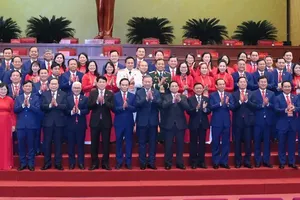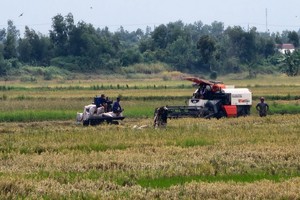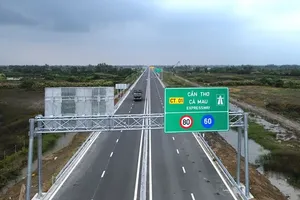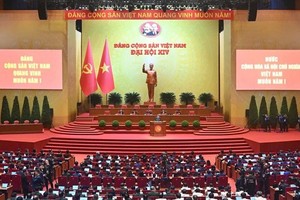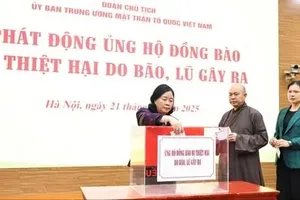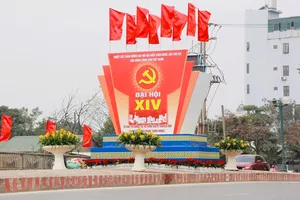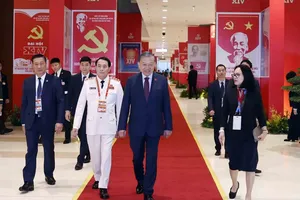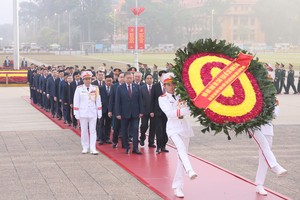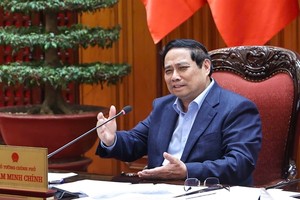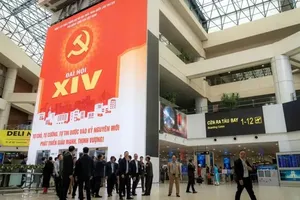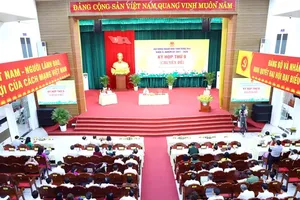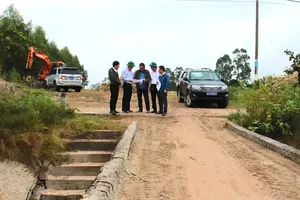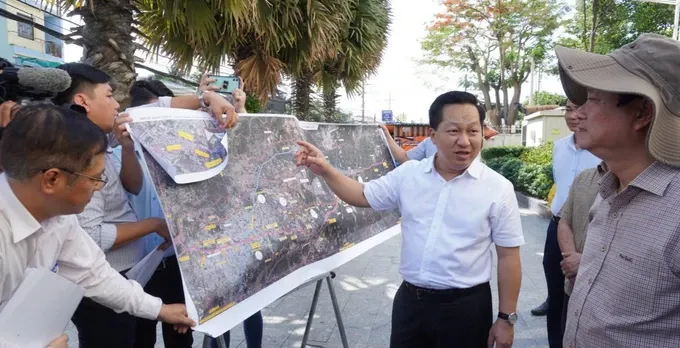
Being member in the land clearance and compensation team for the Long Thanh International Airport project, Deputy Director Nguyen Long Chau of the Long Thanh District Land Development Center in Dong Nai Province emphasizes the importance of thorough preparation, especially accurate land maps and records, clear documentation of construction history and ownership, and up-to-date population data.
In theory, land plots have already been digitally managed. In reality, however, it is rather challenging to precisely identify various data like housing construction time, informal transfer contract for land use right, changes of administrative maps. All of these are slowing down the process of defining specific compensation prices for retrieved land.
There are also constraints in human resources as many staff members have been inadequately trained in land acquisition, taking them around half a year to become familiar with their assigned tasks. In addition to that is a shortage of qualified personnel to handle large-scale projects.
Finally, even though recent updates in land-related policies give more benefits to affected people, leading to more support from the community, they also create administrative burdens to functional agencies.
In another key traffic project – the construction of HCMC Ring Road 3, existing problems in state management have severely influenced land acquisition. For instance, pre-existing illegal constructions on agricultural land and riverbank encroachments hinder compensation and relocation tasks. This calls for a comprehensive legal framework as well as stricter state management to address those issues.
Deputy Head Bui Xuan Thong of the Dong Nai Province National Assembly Delegation stated that his province is now simultaneously running four critical traffic projects of Long Thanh International Airport, HCMC Ring Road No.3, the Bien Hoa – Vung Tau Expressway, and the Ben Luc – Long Thanh Expressway.
All of them are behind schedule due to limitations in land clearance tasks: human resources shortage, unsatisfied land compensation prices and resettlement plans, tardiness in relocating technical structures, unsuitable resettlement for affected people.
Deputy Head Thong emphasizes the importance of clear and comprehensive guidelines in implementing the upcoming Land Law 2024, particularly regarding compensation, support, and resettlement.
Compensation, support, and resettlement (CSR) processes must be conducted democratically, objectively, fairly, openly, and transparently, with particular attention to social policy beneficiaries and direct agricultural producers.
Land compensation should be provided in the form of land with the same intended use as the expropriated land. In cases where suitable replacement land is unavailable, monetary compensation should be based on the specific land value determined by the competent People's Committee at the time of approval of the CSR plan.
Resettlement areas must be equipped with complete technical and social infrastructure in accordance with approved detailed plans and must align with the cultural traditions, customs, and practices of the local community where the land is expropriated.
For cases where the remaining land area after acquisition (in compliance with Articles 78 and 79 of the 2024 Land Law) falls below the minimum area specified by the provincial People's Committee, the competent People's Committee is authorized to retrieve the remaining land as well and must provide compensation, support, and management for this area.
Clear and strict regulations are required to ensure that the competent authority adheres to legal procedures and avoids arbitrary application, which could lead to complaints and disputes.
To facilitate smooth land acquisition processes, experts recommend that specialized agencies promptly finalize policies to address employment concerns for individuals whose land has been expropriated under the Land Law 2024. This includes providing vocational training, career transition support, and job placement assistance for affected households and individuals (Article 109 of the 2024 Land Law).
Specialized agencies should thoroughly develop detailed and comprehensive regulations regarding land valuation, including principles, methods and corresponding application conditions, and framework guidelines.
Land valuation is crucial for determining compensation and support when the state retrieves land; and therefore, clear and strict regulations are essential to avoid discrepancies during the application process.
The state should implement policies that prioritize social policy beneficiaries and direct agricultural producers. Meanwhile, the land acquisition, compensation, support, resettlement, and expropriation processes must adhere to the principle of community participation at all stages.
Individuals whose land is expropriated must receive compensation and resettlement before the land is acquired. The state should also address compensation and support for property owners who are not simultaneously land users, in cases of co-ownership and individuals affected by land acquisition.
Drawing from the challenges, shortcomings, and obstacles encountered during land acquisition processes in major national transportation projects within the province, Acting Chairman Vo Tan Duc of the Dong Nai Province People’s Committee has summarized key lessons learned.
Firstly, it is necessary to enhance the leadership of Party committees at all levels, to improve the administrative management effectiveness of government authorities, and to leverage the role of the Vietnam Fatherland Front (VFF), mass organizations, and the entire population in land acquisition, compensation, support, and resettlement tasks.
Secondly, the mission of land clearance and compensation must be considered as a priority in a construction project.
Thirdly, proactive coordination among relevant agencies and units during the compensation file preparation process must be promoted in order to ensure law compliance in document circulation and approval.
Finally, the provincial People’s Committee should timely deliver instructions to its sub-levels and organizations in charge of land compensation to consider proposals and address arisen problems during this process for more effective land clearance. It is vital to strictly handle cases of intentional violations, individuals instigating or inciting people to act against the policies of the Party and the State as well as applicable laws, while promptly rewarding and encouraging organizations and individuals who excel in land acquisition, compensation, support, and resettlement work.
